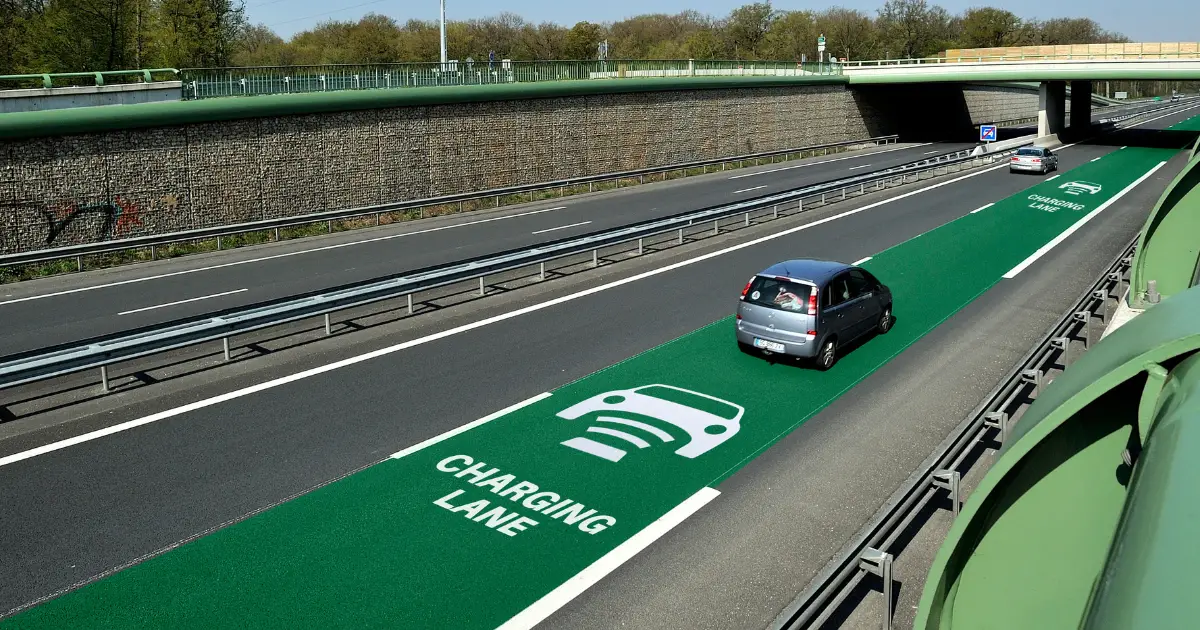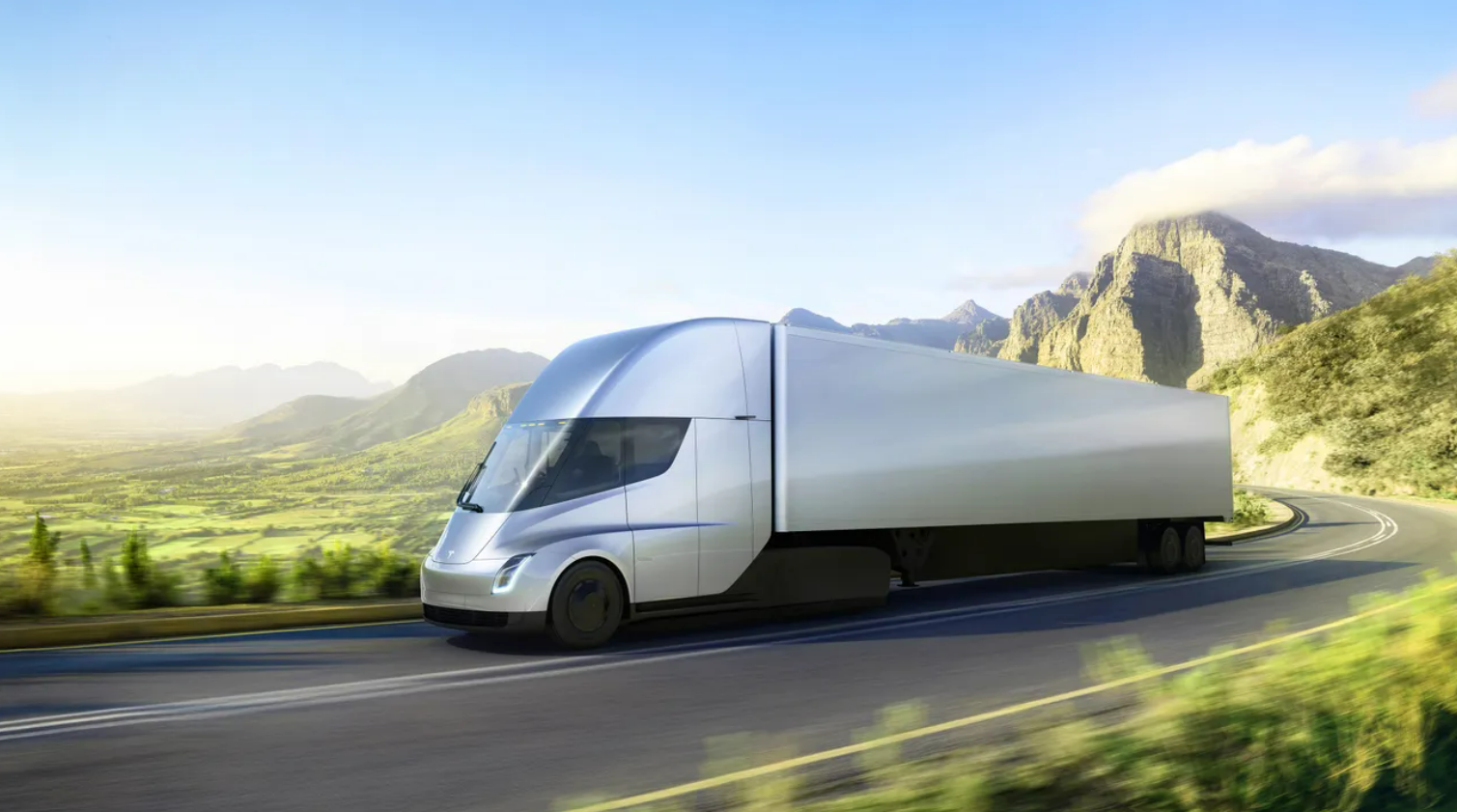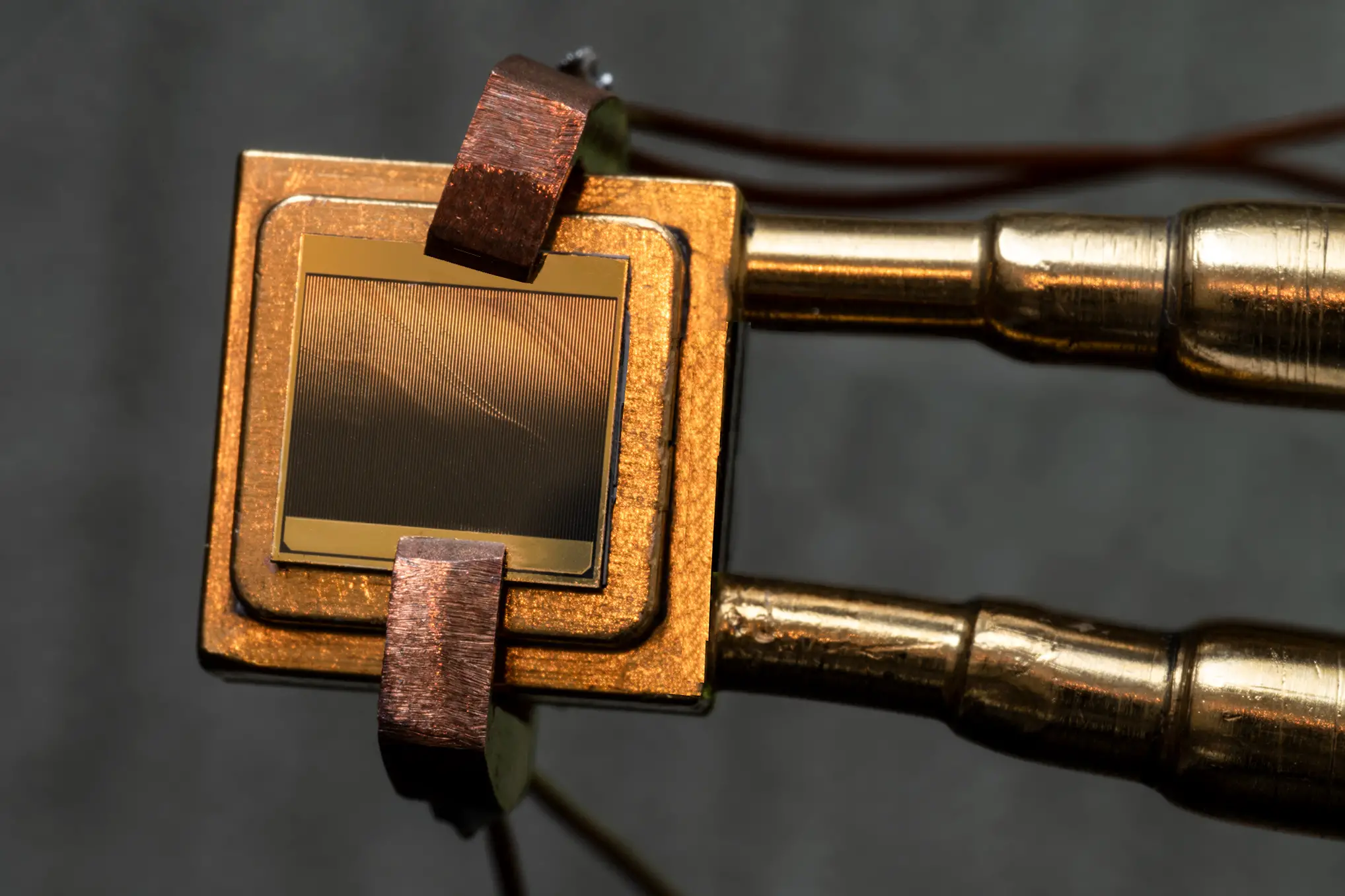Wireless electric vehicle (EV) charging is a technology that allows EVs to charge their batteries without needing a physical connection to a charging station. This is typically achieved through inductive charging, where an electromagnetic field transfers energy between a charging pad and a receiver on the EV.
Wireless EV charging roads are roads or highways equipped with wireless EV charging technology, allowing EVs to charge while driving. This technology is still in the development and testing phase, and there are currently no commercial wireless EV charging roads in operation.
Wireless EV charging roads can potentially improve the range and convenience of EVs, as drivers would not need to stop and plug in to charge their batteries. However, there are also technical and logistical challenges to overcome before wireless EV charging roads can be deployed on a widespread basis.
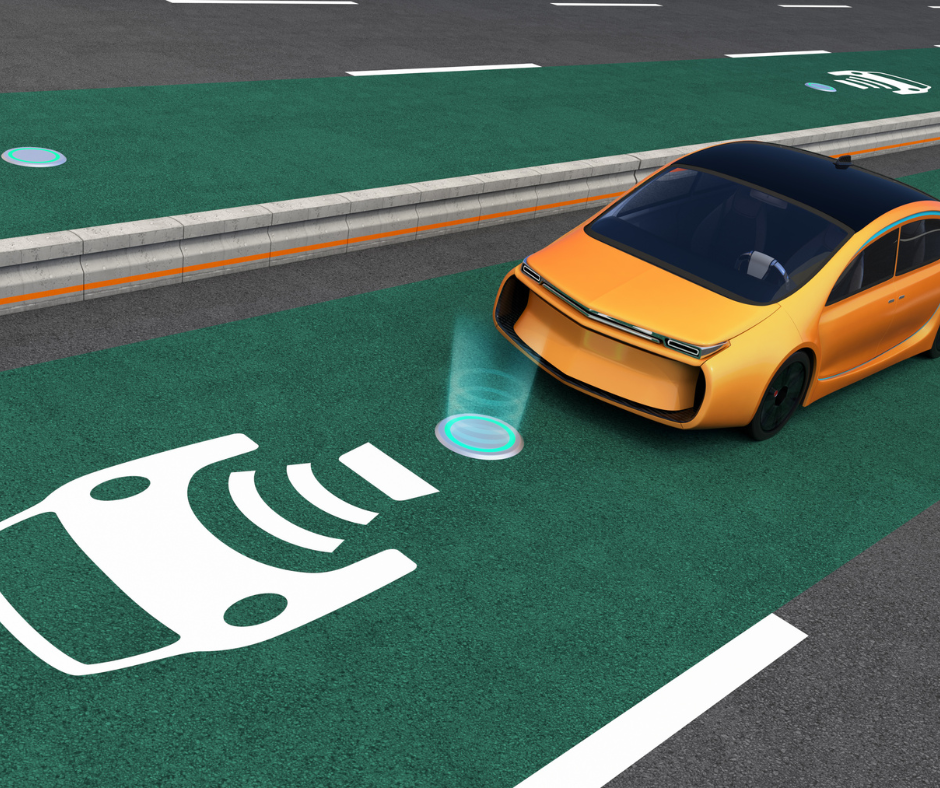
A New Wireless EV Charging Road is Currently Under Construction in Germany
Businesswire says that Germany’s first public wireless road project will use technology from a top provider of wireless and in-road wireless electric vehicle (EV) charging for commercial and passenger EVs.
An electric bus going to the city will be charged by the project.
The chosen supplier is Electron, a big company that makes wireless charging systems for electric cars (EVs). The company’s inductive charging technology has won awards and is one of the most eco-friendly, scalable, and attractive ways to charge devices.
This technology charges EVs dynamically (while they’re moving) and statically (while they’re still) to reduce battery capacity needs, get rid of “range anxiety,” lower total ownership costs, and charge EVs quickly and safely. Electron works with cities and fleet operators on a charging as a service (CaaS) platform to make it possible for the public, commercial, and self-driving fleets to be converted to electric vehicles at a low cost and without any downtime.
The electron will put in an Electric Road System (ERS) along a 0.62-mile (1-kilometer) stretch of road with the help of EnBW, Germany’s largest provider of charging stations for electric cars. The two static charging stations are placed based on where the bus stops are.
There will be two main parts to the plan
In the city of Balingen, the technology will be used in two stages. In the first step, two static charging stations will be set up along a 1,312-foot (400-meter) path. In the second phase, the electric road will grow by 1,969 feet (600 meters).
This plan was made after a pilot test of Electron’s technology with EnBW in Karlsruhe went well. At the EnBW training center, an electric road was built. This road powers a nearby public bus during rush hour. As part of the deal, Electron will get up to €3.2 million (about $3.4 million) for this project in Balingen to set up dynamic and static wireless charging infrastructure.
The person in charge of the EnBW research division project, Dr. Maximilian Arnold, is looking forward to the project starting on time and said, “The project in Balingen shows how Germany is promoting e-mobility creatively and consistently.
We look at things as a whole and want to ensure that German public transportation is technically ready for wireless charging. This also means convincing authorities, energy network operators, bus companies, and the general public of the opportunities.”
“We are happy to be a part of this promising project with partners like Electron and the Karlsruhe Institute of Technology,” he said.
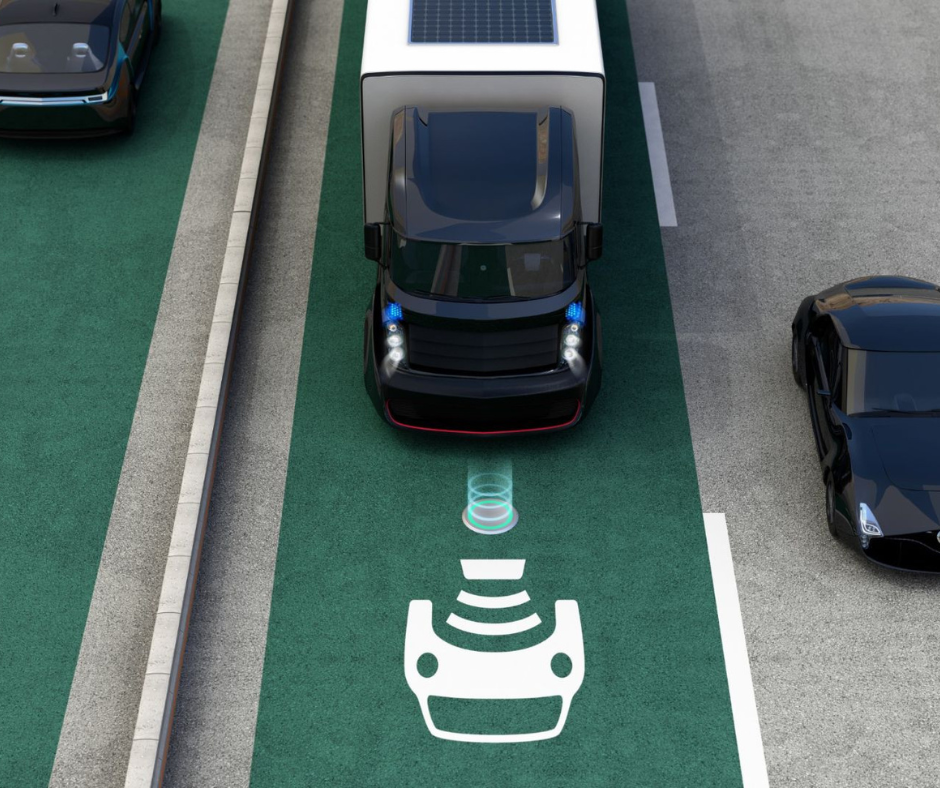
What is the aim of this project?
Dr. Andreas Wendt, CEO of Electron Germany GmbH, said, “The goal of this project is not just to make wireless charging available to the public in Germany.”
“Other important parts include making and using a tool to help public transportation planners figure out where to put the inductive infrastructure for a certain town or region. In our project with EnBW in Karlsruhe, we’ve already shown that wireless dynamic charging works well, is safe, and is easy to set up. We hope this is the first of many projects on public and private roads in Germany,” Wendt said.
Why is new wireless EV charging road beneficial?
Wireless electric vehicle (EV) charging technology has the potential to offer several benefits, including:
- Improved convenience
- Enhanced range
- Reduced infrastructure costs
- Improved safety
Final Words:
In this article, we have discussed the new wireless EV charging road. However, it is important to note that wireless EV charging technology is still in the development and testing phase, and there are currently no commercial wireless EV charging roads in operation. There are also technical and logistical challenges to overcome before wireless EV charging roads can be deployed on a widespread basis.

